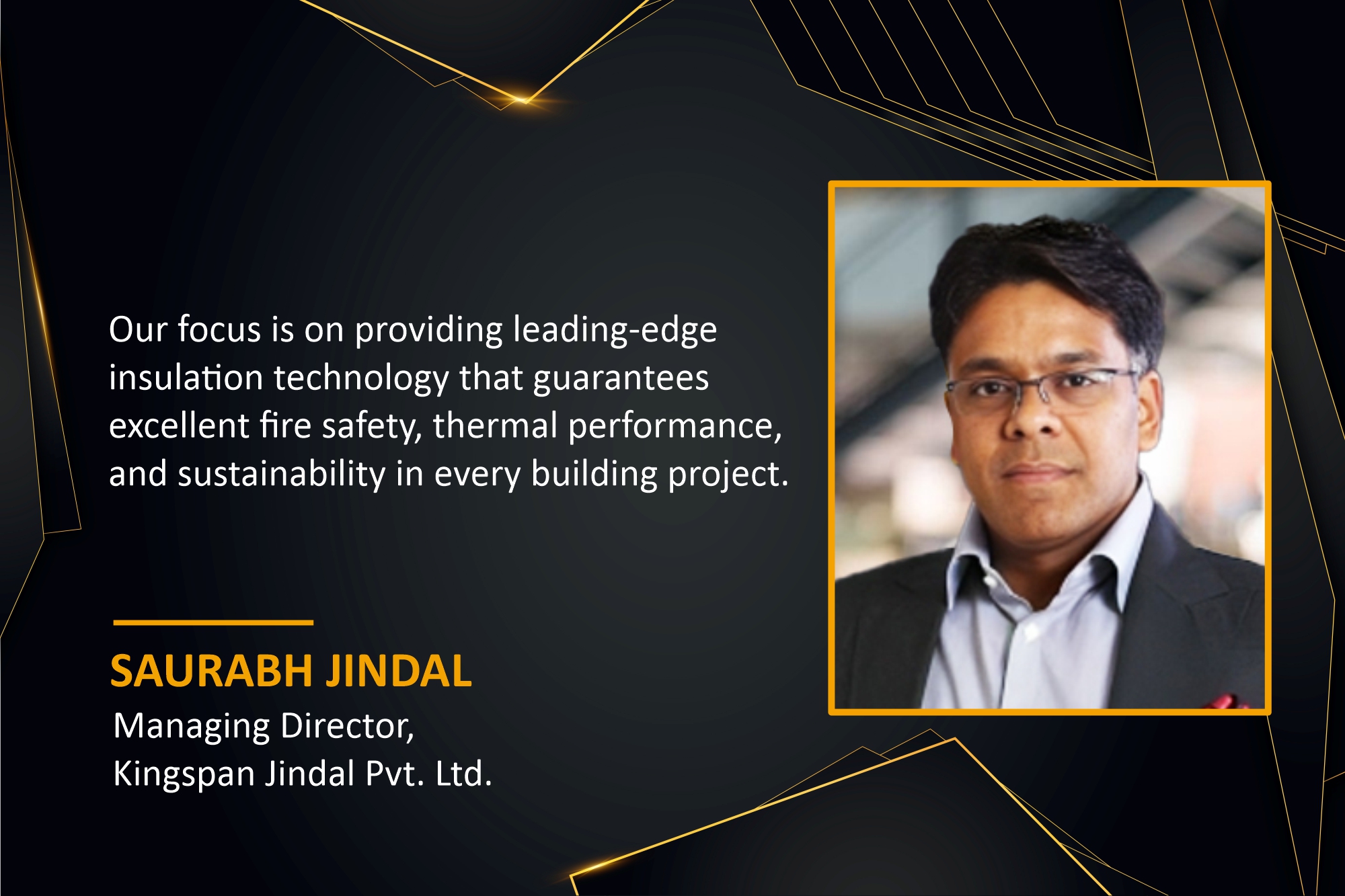Future-proof buildings with advanced insulation

The discussion explores the importance of high-performance insulation materials, their impact on building safety, moisture control, and fire resistance, and how new PEB solutions are shaping the future of construction.
Could you describe the insulation materials that best contribute to the safety and structural integrity of building envelopes?
In construction, choosing the correct insulation materials is critical to the safety and structural integrity of building envelopes. Each material includes various advantages and characteristics:
QuadCore is a patented insulation material that combines thermal efficiency, fire resistance, and sustainability. It provides great thermal performance and better fire safety, making it an excellent choice for high-performance, safe building envelopes. PUR/PIR (Polyurethane/Polyisocyanurate) materials provide excellent thermal insulation, but fire resistance varies. PIR typically has better fire resistance than PUR due to its ability to form a char layer when exposed to flames, improving fire safety in certain applications. Mineral wool, derived from stone or glass fibres, is non-combustible and has high fire resistance and sound absorption properties, improving fire safety and offering excellent insulation for building envelopes. IPN foam, noted for its great thermal insulation, is frequently fire-rated, albeit its fire resistance depends on the additives employed during production. It is commonly used in composite panels for structural support and thermal performance.

Please walk us through the best insulation solutions that protect against moisture, fire, and infestation.
QuadCore insulation, a high-performance hybrid insulation, is designed to provide excellent resistance to moisture, fire, and infestation. Its closed-cell structure is very resistant to moisture penetration, helping to avoid mould growth and corrosion within walls. It also meets strict fire safety regulations, providing high levels of fire resistance and protection in buildings. QuadCore’s inorganic makeup also makes it resistant to pest infestations such as mice and insects, ensuring long-term endurance. This innovative technology is particularly popular in commercial and industrial situations where optimum energy efficiency and long-term structural integrity are critical, making it an excellent choice for building insulation.
Are you also in the PEB structures business? If so, could you please describe the uniqueness of your PEB structures?
We offer a wide range of building envelope technologies for PEB constructions, with great aesthetic versatility. Our product line includes insulated panels, architectural roofing solutions (such as KingZip roofing), architectural facades, cold storage, and clean room solutions. Our insulated panels continuously set new standards for speedy construction, superior quality, and unparalleled aesthetics. They are cost-effective and adaptable, preserving time and providing sustainable architectural options. These panels result in long-lasting, high-quality buildings that require minimal maintenance. QuadCore Technology is our next generation of self-blended hybrid insulation cores. With its characteristic grey microcells, this invention is a smarter way to construct PEBs for improved fire, thermal, health, and wellness performance.
Tell us something about your company, Kingspan Jindal.
Kingspan Jindal is a strategic joint venture between Kingspan and Jindal Mectec that brings together the world’s largest sandwich panel manufacturers and India’s largest. This cooperation expands our product capabilities by integrating Kingspan’s innovative insulation core technologies with cutting-edge building technology knowledge. As an industry leader in India and worldwide, our company rapidly became the leading producer of high-performance insulated panels and building envelope systems, setting new benchmarks for innovation and excellence. We operate two cutting-edge continuous line manufacturing facilities in Nalagarh, Himachal Pradesh, and Pithampur, Madhya Pradesh, and offer a wide range of insulated panel products throughout India, alongside exports to key markets such as Bangladesh, Nepal, Bhutan, Maldives, Mauritius, Seychelles, and Sri Lanka.
For more details, visit: https://www.kingspanjindal.com/in/en/
Cookie Consent
We use cookies to personalize your experience. By continuing to visit this website you agree to our Terms & Conditions, Privacy Policy and Cookie Policy.










